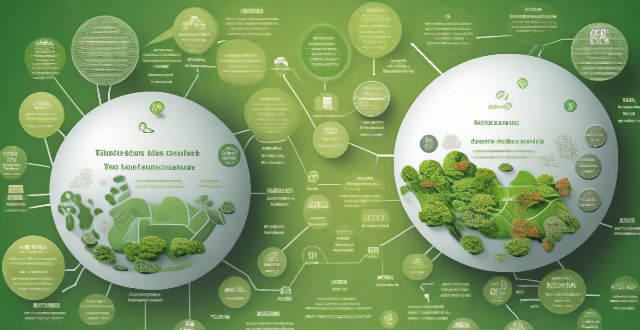The article discusses the economic impacts of climate loss and damage, including direct impacts on agriculture, coastal communities, and health, as well as indirect impacts on the energy sector, insurance and financial services, and the labor market. It highlights the need for a comprehensive approach to address these challenges.

Economic Impacts of Climate Loss and Damage
Climate loss and damage refer to the adverse effects of climate change on human societies and natural systems. These impacts can have significant economic consequences, which are often felt most acutely by vulnerable populations and communities. In this article, we will explore the various economic impacts of climate loss and damage in detail.
Direct Economic Impacts
Agriculture and Food Security
- Reduced crop yields: Climate change can lead to reduced crop yields due to changes in temperature, precipitation patterns, and extreme weather events such as droughts and floods. This can result in food shortages and higher prices for staple crops.
- Livestock productivity: Extreme temperatures and changing rainfall patterns can also affect livestock productivity, leading to reduced meat and dairy production.
- Loss of biodiversity: Climate change can cause the loss of plant and animal species that are essential for food security, affecting both traditional agricultural practices and modern farming techniques.
Coastal Communities and Marine Ecosystems
- Rising sea levels: Rising sea levels caused by global warming can lead to flooding and erosion, particularly in low-lying coastal areas. This can result in damage to infrastructure, homes, and businesses, as well as displacement of communities.
- Impact on fisheries: Changes in ocean temperatures and acidity levels can affect fish populations and their distribution, leading to reduced catches for fishermen and higher prices for consumers.
Health and Well-being
- Heat waves: Heat waves can cause heat-related illnesses and deaths, particularly among vulnerable populations such as the elderly and those with pre-existing health conditions.
- Air quality: Climate change can exacerbate air pollution, leading to respiratory problems and other health issues.
- Vector-borne diseases: Warmer temperatures can expand the range of disease-carrying insects like mosquitoes and ticks, increasing the risk of diseases such as malaria, dengue fever, and Lyme disease.
Indirect Economic Impacts
Energy Sector
- Increased demand for cooling: As temperatures rise, there may be an increased demand for air conditioning and refrigeration, leading to higher energy consumption and costs.
- Renewable energy potential: While climate change poses challenges for energy production, it also creates opportunities for renewable energy sources such as wind and solar power.
Insurance and Financial Services
- Higher insurance premiums: The increased frequency and severity of natural disasters can lead to higher insurance premiums for property owners in affected areas.
- Financial market volatility: Climate change can create uncertainty in financial markets, affecting investment decisions and economic stability.
Labor Market and Productivity
- Changes in employment patterns: As certain industries are affected by climate change, there may be shifts in employment patterns, with some jobs becoming more scarce or disappearing altogether.
- Reduced productivity: Extreme weather events and changes in temperature can lead to reduced worker productivity, particularly in outdoor occupations or those without access to adequate cooling or heating facilities.
In conclusion, the economic impacts of climate loss and damage are far-reaching and complex, affecting various sectors of society and the global economy. Addressing these challenges requires a comprehensive approach that involves mitigating greenhouse gas emissions, adapting to the inevitable changes, and investing in resilient infrastructure and sustainable development practices.